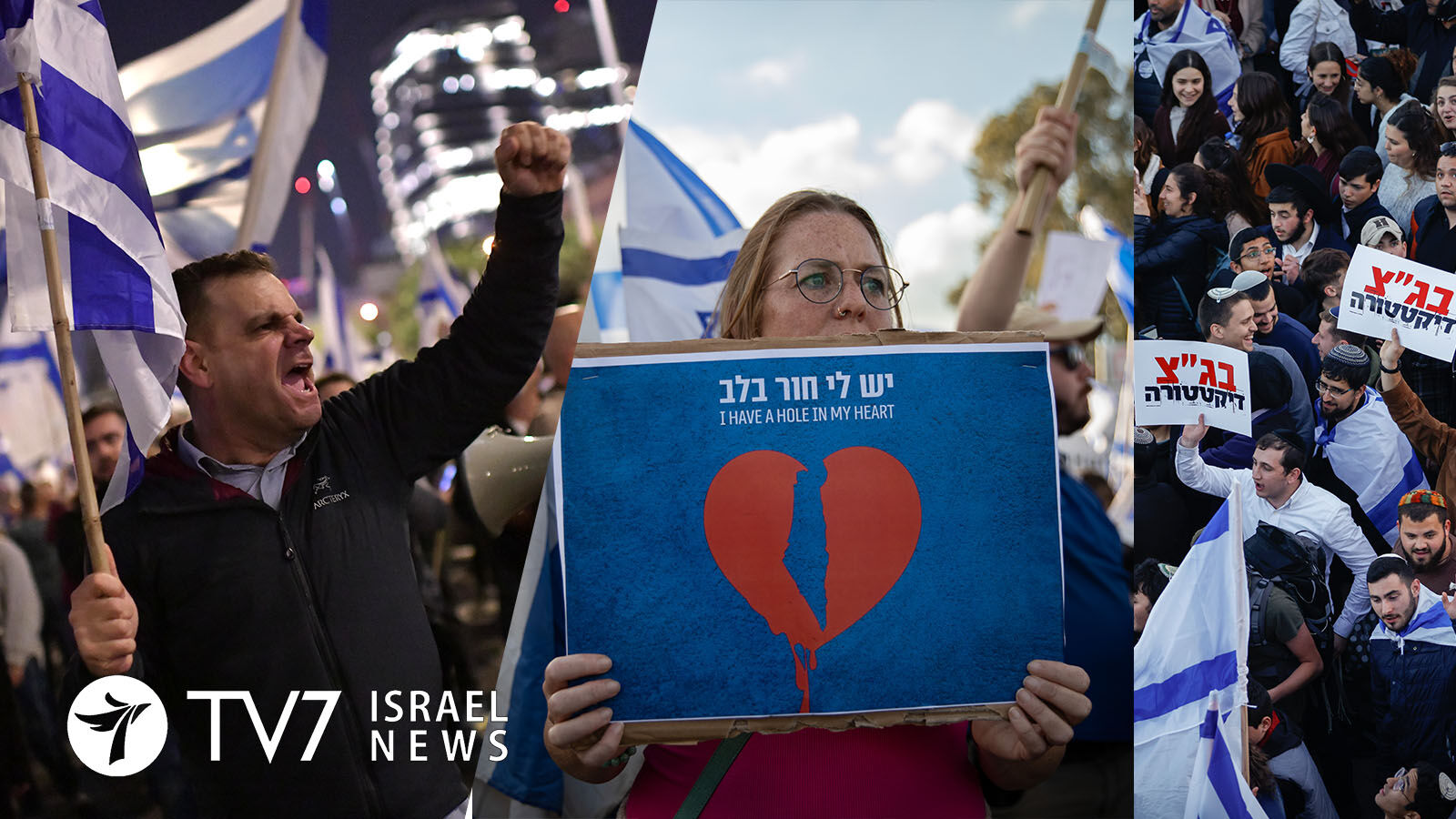Enemies of the Jewish State have been paying close attention to domestic upheaval over the Netanyahu government’s contentious judicial reform.
By Erin Viner
The Israeli government plan to tighten parliament’s control over judicial processes triggered some of the biggest mass protests in the country’s 75-year-old history, with opponents slamming the plan a threat to democracy.
Last night Israeli Prime Minister Benjamin Netanyahu delayed the bitterly contested plans to open talks in attempts to calm tensions following expansion of the demonstrations over his firing of Defense Minister Yoav Gallant, who had warned the coalition’s judicial overhaul threatened Israeli security. The development came amid rising concerns the divisions could fracture Netanyahu’s three-month-old coalition or escalate into violence.
The Israeli protests, strikes and political chaos have headlined across a wide range of Arab broadcasters. The news ticker on the pan-Arab Al Jazeera channel was dominated by a stream of news from Israel yesterday.
The crisis was the lead story on the evening news broadcast at Lebanon’s al-Manar, which also published an article on it’s website with a caption reading that “complete paralysis” had afflicted the “enemy” due to yesterday’s general strike. The station is operated by Hezbollah. Crowing last month that the Israeli strikes would disintegrate into civil war, leader of the Iran-backed terror group, Sheikh Hassan Nasrallah, proclaimed, “God willing, it will not reach its 80th birthday.”
Israeli Independence Day will be celebrated this year on 26 April according to the Hebrew calendar.
Some Arab viewers paying rapt attention to the internal fight over the judicial overhaul have voiced hope it will lead to Prime Minister Netanyahu’s political demise, while others yearn for even more far-reaching consequences for Israel.
“As an Arab citizen I think that this is the beginning of the end of Israel, God willing,” said Jordanian national Qusai al-Qaisi, whose country signed a peace treaty with Israel in 1994. “I’m really happy that this is happening there,” he added.
In Syria, Mohammad Abdullatif, 39, said, “What’s happening is definitely, for any Arab, good news.”
“We hope it doesn’t settle any time soon, and we hope it escalates and gets worse,” commented political analyst Talal Okal in the Islamist Hamas-controlled Gaza Strip. Another Gazan, Nael Meqdad, 43, said, “The division is of their own making and now it is hunting them down.”
The internationally-recognized Hamas terror group seized Gaza from its bitter rival Fatah, which runs the Palestinian Authority (PA) in the West Bank, during a brutal conflict in 2007. Multiple attempts to end power-sharing disputes between the two sides have repeatedly ended in failure.
Some Palestinians, who accuse Israel of fueling the internecine fight to further set back statehood aspirations, compared the division in Israel to their own factional split.
“What’s happening in Israel – they deserve it. Just like they divided us, they are now getting divided,” said Gaza resident Hani Abu Tarabeesh.
Israel faced a storm of Arab condemnation earlier this month when a leading member of Netanyahu’s government, Finance Minister Bezalel Smotrich, said there are no Palestinian Arab People.
In the United Arab Emirates (UAE), one of several Arab states to normalize ties with Israel in recent years, political commentator Abdulkhaleq Abdulla said yesterday that while the internal strife has no bearing the 2020 Abraham Accords and that commercial relations are ongoing. Israel and the UAE this week signed a free trade agreement expected to reduce or eliminate tariffs on about 96% of goods traded between the nations and enable Israeli companies to gain access to government tenders in the UAE. Abdullah went on to note, however, that recent “racist statements” in Israel have raised concern.
In Egypt, the first of Arab countries to sign a peace treaty with Israel in 1979, pensioner Hakem Sherif blasted the Jewish State as illegitimate and echoed criticism of Israeli policies toward Palestinians. He nevertheless went on to express respect for Israeli democracy, saying, “Citizens have a space to express their opinions, they don’t randomly arrest or carry out violent dispersal of protests.”
